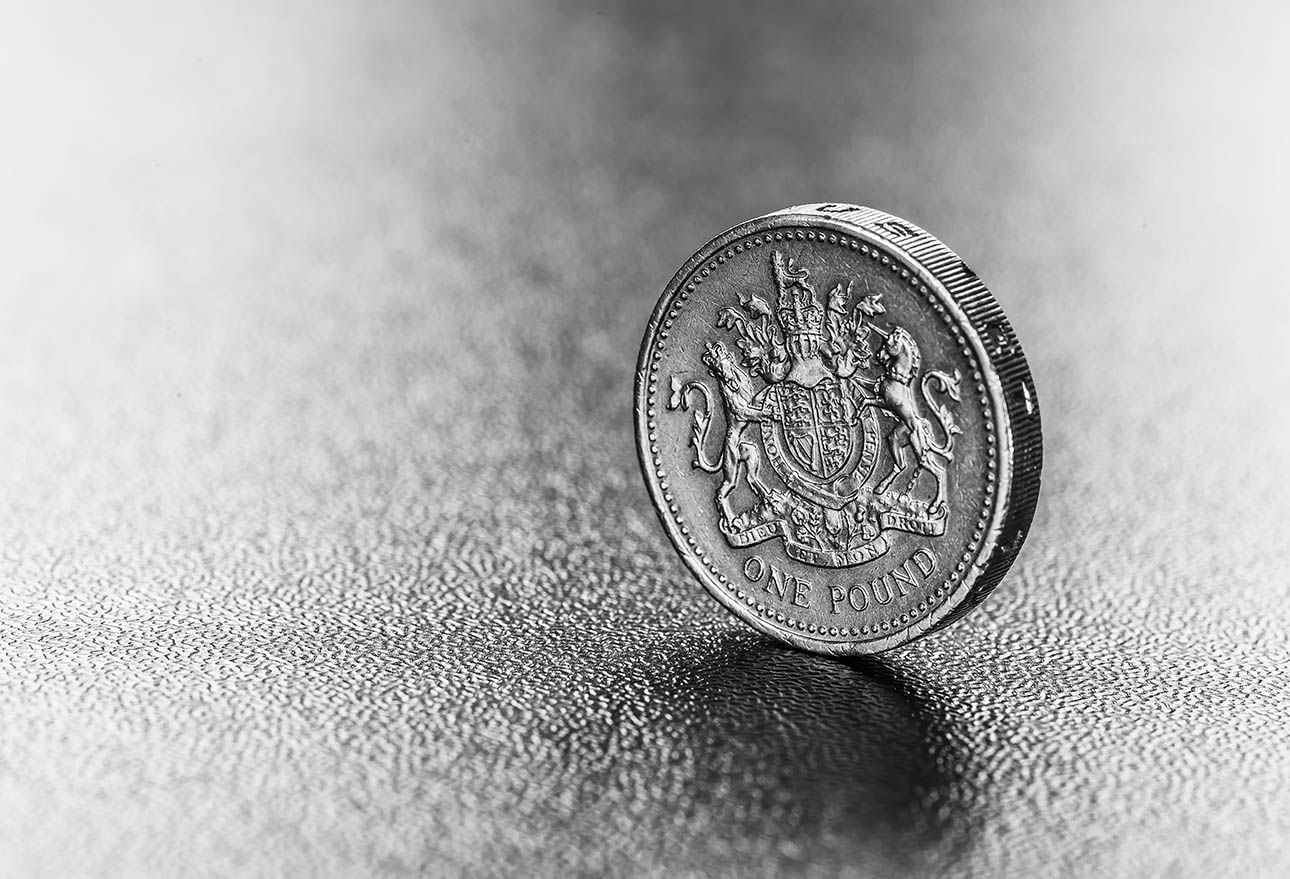British Pound Sheds Value on News UK Economy Shrank in April

Image (C) Adobe Stock
- Car plant shutdowns drive economic contraction
- But economy still grew in the three months to April
- UK economy and Sterling tipped to struggle over coming months
Pound Sterling reacted negatively to data out Monday that shows the UK economy shrank 0.4% in April 2019 according to the latest set of monthly growth data from the Office for National Statistics.
Markets had been expecting a disappointing reading, although not by this margin, as the estimate by economists was for a decline of 0.1%.
The disappointment corresponded with a fall in the Pound-to-Euro exchange rate from 1.1250 to 1.1225, while the Pound-to-Dollar exchange rate fell from 1.2718 down to 1.2695.
We were not anticipating much of a reaction to the data by Sterling, however it appears the scope of the disappointment could not be ignored by foreign exchange markets.
The ONS report that while the economy shrank 0.4% in April, it grew 0.3% in the three months to April.
“GDP growth showed some weakening across the latest 3 months, with the economy shrinking in the month of April mainly due to a dramatic fall in car production, with uncertainty ahead of the UK’s original EU departure date leading to planned shutdowns," says Rob Kent-Smith, Head of GDP at the ONS. “There was also widespread weakness across manufacturing in April, as the boost from the early completion of orders ahead of the UK’s original EU departure date has faded.”
Separate data released by the ONS shows the manufacturing sector contracted 3.9% on a month-on-month basis in April, where forecasts had suggested the market was eyeing a shallower decline of -1.1%.
Industrial production meanwhile contracted 2.7% in April where markets were expecting contraction of 0.7%.
The disappointing data heaps further pressure on Sterling which is already struggling under the yoke of political uncertainty with the Conservative Party's leadership race now fully underway and suggesting that the likely winner will only see success if they are open to courting a 'no deal' Brexit.
Above: The clear reaction by Sterling against the Dollar to the GDP data release.
Above: The clear reaction by Sterling against the Euro to the GDP data release
"Sterling though has clearly been unwilling to completely write off the weakness, perhaps also concerned that the drop in industrial sector output is a sign of some of the disruption that could be to come, if the UK were to face a very disorderly Brexit. Indeed, Sterling has fallen to stand at $1.2685 against the USD, from around $1.2725 before the data," says Victoria Clarke, an economist with Investec.
Bank of England financial modelling suggests under a 'no deal' Brexit there would be a negative hit to the UK economy and a substantial readjustment lower in the value of the Pound.
The economic statistics out Monday will serve as a reminder to currency traders and investors that the UK faces significant economic vulnerabilities over coming months due to ongoing political uncertainty.
Responding to the data, James Smith, Developed Markets Economist at ING Bank, says the slippage in UK economic activity in April "is almost entirely down to a Brexit-related correction in manufacturing."
The outlook for the economy going forward remains difficult says Smith:
"The wider growth story continues to look fairly bleak. While consumer spending may be a little stronger given the modest improvement in real wage growth, investment is likely to continue falling over the summer as Brexit uncertainty weighs on decision-making."
Expectations for further uncertainty on the horizon is expected to ensure the Bank of England opts to keep interest rates unchanged for the remainder of the year.
"Rising concerns about a possible ‘no deal’ Brexit, as well as the growing likelihood of a general election in the autumn, make it more likely that the central bank remains on hold through this year," says Smith.
For Sterling, an interest rate rise - in response to rising wages and inflation - would have offered a rare source of support as currencies tend to rise when their central bank is raising interest rates.
However, it now looks as though the UK's resilient economy might no longer offer the support the Pound has come to rely on over recent months.
John Hawksworth, Chief Economist at PwC, says the UK should however avoid recession and see modest growth over coming months:
"After a strong first quarter, GDP fell back sharply in April due to planned car factory shutdowns and the reversal of stockbuilding before the original Brexit date.
"Looking through these temporary fluctuations, underlying growth in the UK economy remains modest as Brexit-related uncertainty continues to weigh on business investment. Modest growth seems likely to continue through the summer and autumn, bearing in mind also the drag on business confidence from rising global trade tensions."
PwC reckon robust consumer spending courtesy of continued jobs growth and rising real earnings over the past year, as well as increased government spending, should buoy the economy.
"Balancing these positive and negative effects, we expect UK GDP growth to remain modest, averaging around 0.2% per quarter over the rest of the year," says Hawksworth.
Time to move your money? Get 3-5% more currency than your bank would offer by using the services of foreign exchange specialists at RationalFX. A specialist broker can deliver you an exchange rate closer to the real market rate, thereby saving you substantial quantities of currency. Find out more here.
* Advertisement







